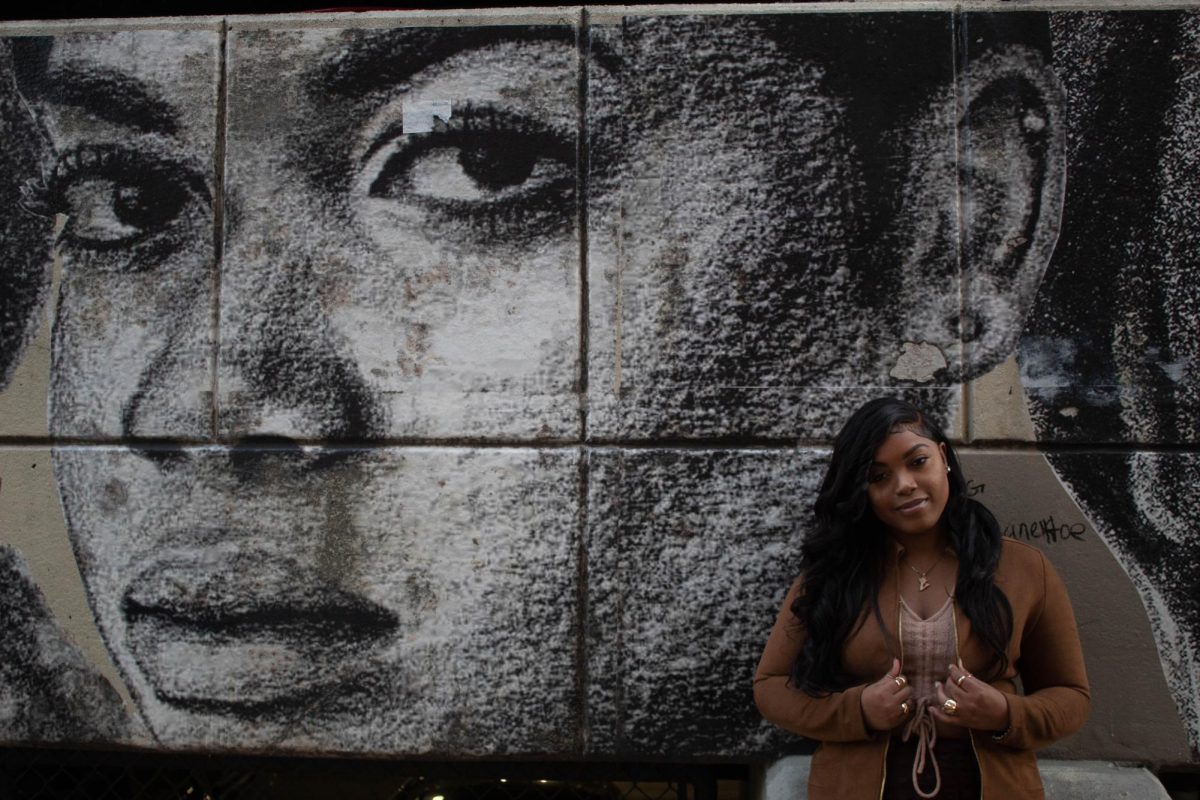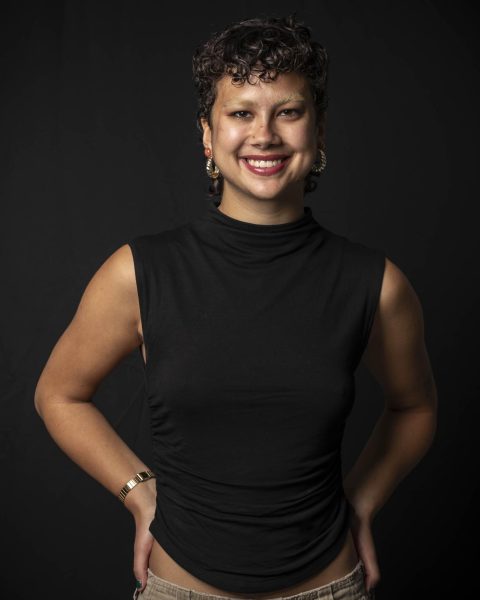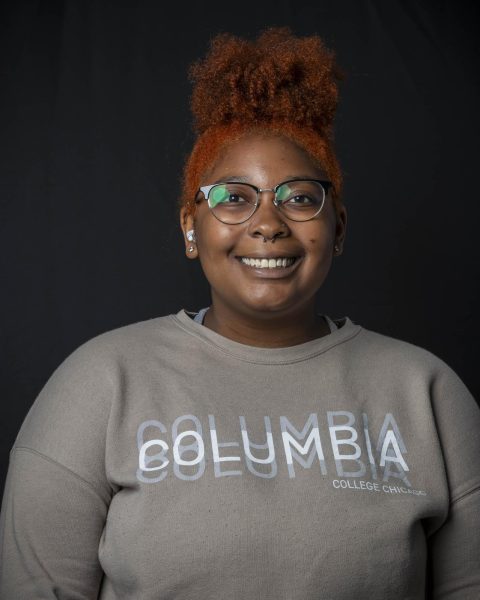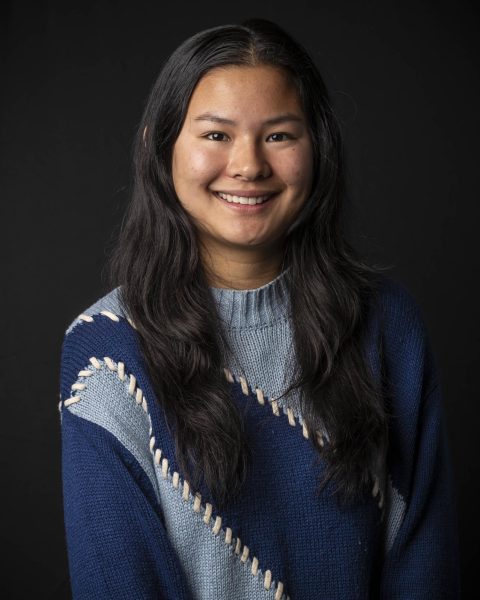THE HIP-HOP ISSUE
KYN
A month after starting at Columbia, Kennedy Person, also known as KYN, attended her first open mic at Millennium Park. A rapper and poet from the south side of Chicago, Person has been performing ever since.
Person said she started writing in a diary in the fourth grade, which eventually transitioned into poetry.
“I was really shy so that was also my way of talking,” she said.
Person continued to write throughout high school as well.
“I finally took the opportunity at my school to enter a writing contest, which got me some free studio time,” Person said. “So I recorded my first song and that’s my first time in the studio and it all just happened at once and I just ran with it.”
Person is currently a sophomore majoring in creative writing with a focus in poetry at Columbia.
When it comes to her music, most of Person’s inspiration comes from the New York sound.
“I just love the whole aesthetic, the sound, the vibe, the energy – it’s just that’s my alter ego at heart,” she said. “I really draw from them like Little Kim, Biggie, Wu-Tang – like they’re my top three. And then I also like some Chicago artists like Lil Durk, Tink and G Herbo.”
Person said she likes to prioritize lyrics first, which is why it was natural for her to major in writing.
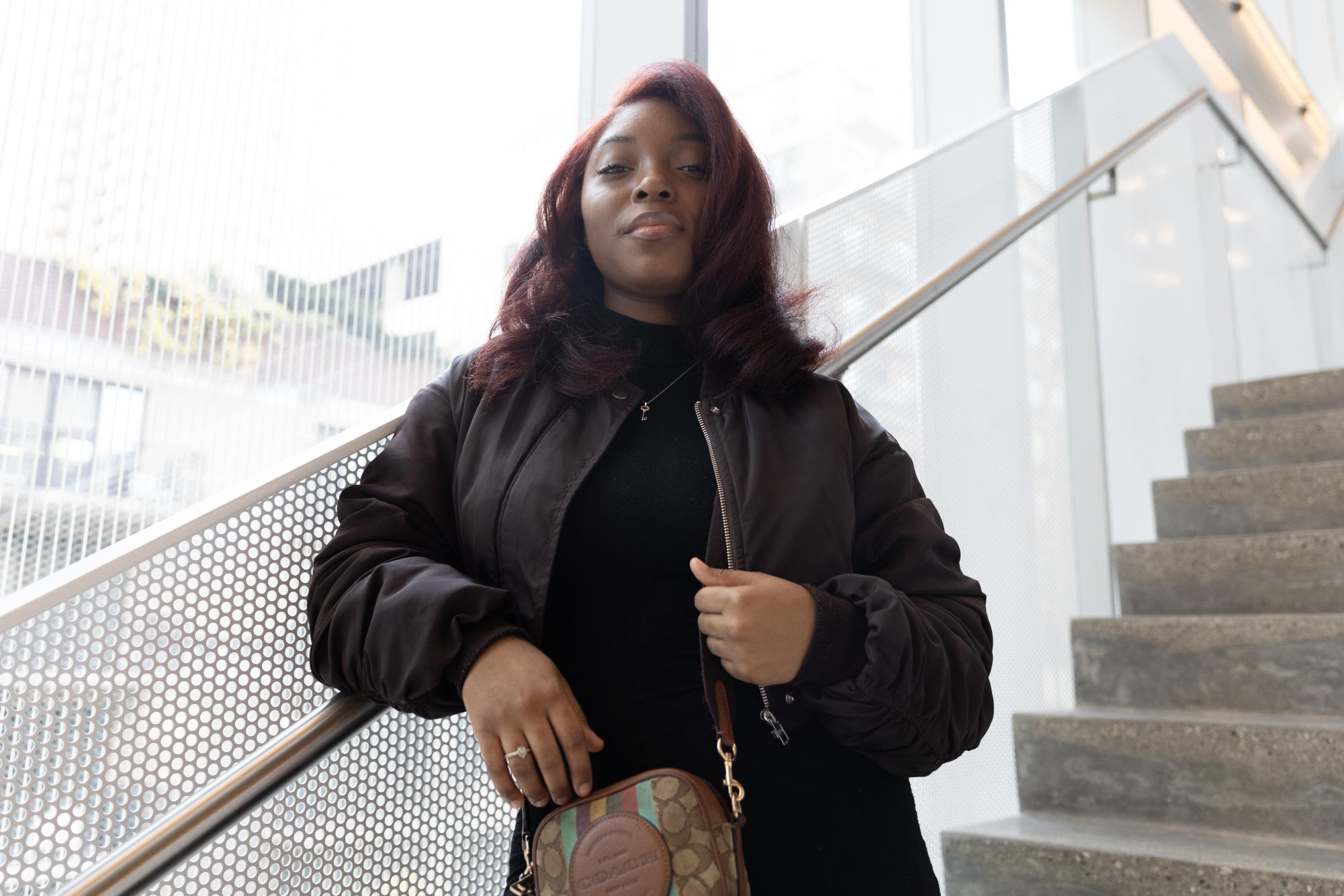
“I want to make sure the lyrics are the main focus, regardless of the melody or the beat, like at heart, I’m a writer,” Person said.
Being a woman in the hip-hop community makes her an “underdog” sometimes, but Person said she doesn’t mind.
“I like it because it just feels like a challenge,” Person said. “Most times I’ll be quiet, and then once I perform and hit the stage, I have a whole ‘nother side.”
When it comes to her art, Person blocks out outside negativity as much as possible.
“I feel like either you have to be over-sexualized or you have to fit into whatever their category is and how they define what your status should be like here, and I don’t really care to get into that,” she said.
Much like the hip-hop industry as a whole, Person feels the hip-hop scene at Columbia is dominated by men.
“I’ve really been trying and looking for other female artists on campus to connect with,” she said.
Person said being on stage is one of her safe spaces, making her feel confident and on top of the world.
“My music is just about me, like I can’t write from anybody else’s perspective – just mine so it’s just really like I say like my own emotions…I just want somebody else to connect to that and understand where I’m coming from or how I feel because you never know who might relate to it or who might need to hear that.”
Person said she wants to remind other artists that it’s important to go at your own pace and limit outside voices that make you doubt yourself.
“I really feel like one thing I’m learning is just be patient with yourself because your story is your story and can’t nobody else dictate that or control you,” she said.
Person plans to release the current album she’s working on, titled “Lost Files,” in February of next year.
Jaeya Bayani
Raised around breakdancing culture, going to cyphers and listening to artists like Too Short, E40 and Andre Nickatina, rapper and popper Jaeya Bayana from Fremont, California, has been around hip-hop since she can remember.
From clothing to music, Bayani was introduced to various elements of hip-hop from a young age.
“I grew up going to a lot of poetry shows and especially a lot of queer Black and Brown poetry,” Bayani said. “And so that was super cool, like, being exposed to that and learning how to be aware of my own identity and other people’s and learning how to deconstruct that harm through language and through poetry was really cool. I think that comes out a lot in my music.”
High school is when Bayani really found her connection to hip-hop, “which is when I got to see a lot of Filipino rappers,” she said. “That was kind of what got me more into Filipino American activism and just activism in general for Black and Brown artists’ rights.”
Bayani is now a senior at Columbia majoring in music business with a minor in Hip-Hop Studies.
Throughout Bayani’s time at Columbia, she has been guided by mentors like Amina Norman-Hawkins, a faculty member in the Music Department and Coolout Chris, a music producer in Chicago.
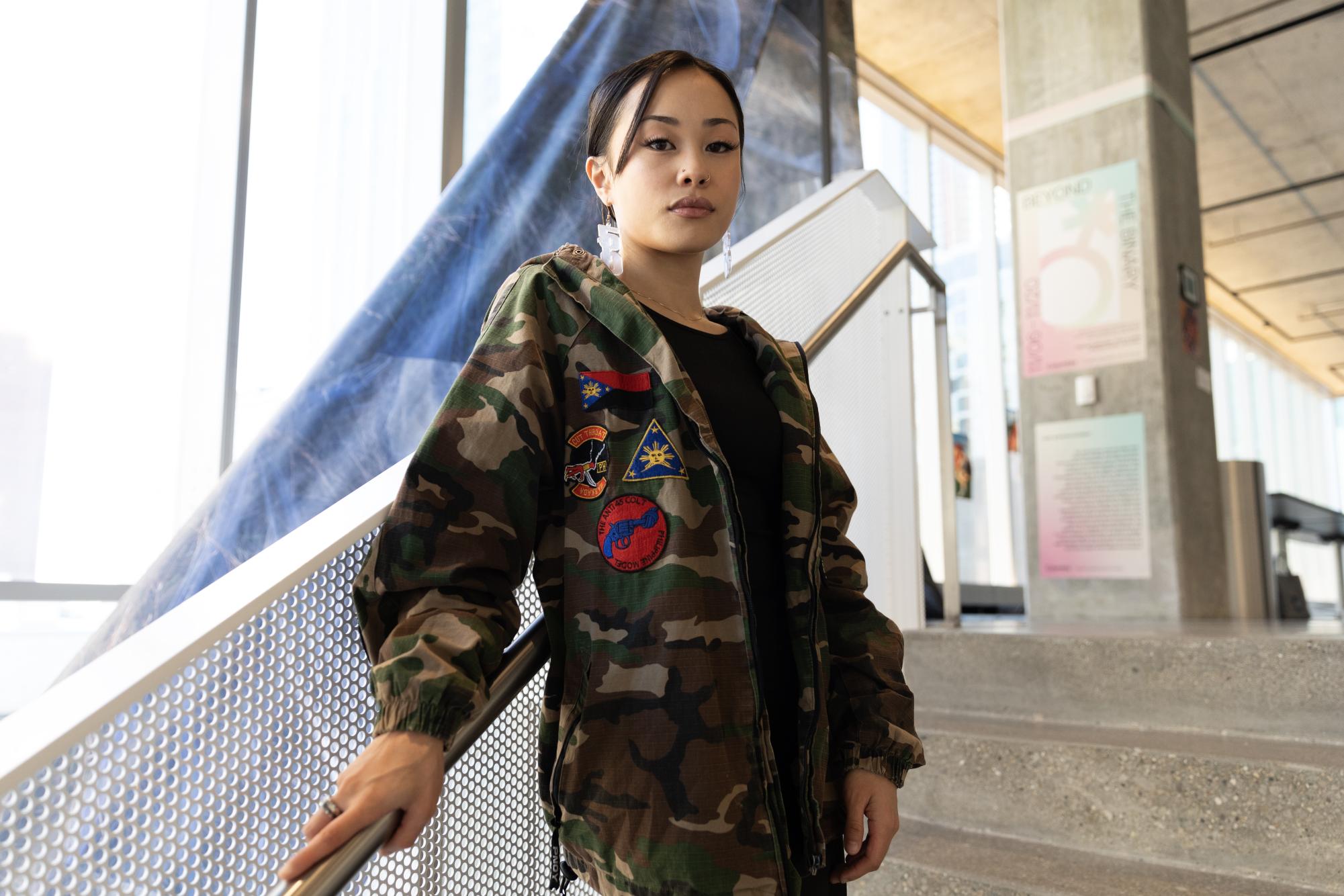
“They’re fantastic resources who have taught me so much about what it is to be a rapper and what it is to learn about the history and the connection of hip-hop culture to jazz and R&B and soul and African music as well,” she said. “I feel like I’ve always been a lifelong student of hip-hop from the Bay Area to here.”
Bayani said she is now mainly influenced by artists such as Ruby Ibarra, Rocky Rivera and the Pacifics, a Filipino hip-hop group from Chicago. She also draws inspiration from 90s R&B artists such as Brandy and Erkyah Badu.
“Hip-hop is always about community and hip-hop is always about being a student,” Bayani said.
In an industry that Bayani said has a lot of misogyny, she said it’s about being “able to pay attention to that and not letting it get in the way of trying to collaborate with other women and uplift other women because it’s so easy to compare yourself with men constantly being critical of you and men constantly criticizing other women and putting them on blast for things that if they did, they wouldn’t be put on blast for.”
After Bayani graduates she plans on going to law school.
“My goal is to be an intellectual property and entertainment lawyer so I can finally stick up for people in the industry and make sure that we stop signing onto these terrible and shitty deals,” she said.
For Bayani, music is a way to connect people. “I really just love doing it, to put together events for the community and bring other people together.”
She hopes that her work will impact artists like her.
“It goes beyond just trying to advocate for myself as a queer artist, but also just trying to work with and manage and uplift other people that are too,” Bayani said.
Vicki Street
Victoria “Vicki” Street’s introduction to hip-hop came from her older brother at a young age.
“Tupac and Biggie were the first artists that I was introduced to, hip hop-wise,” Street said. “There are key people in your life that just introduce you to something and they spark that idea and then it is up to you to go from there. As I grew up, I created my own understanding of these songs and realized the actual cultural relevance and power of these songs.”
Street, known as the Multimedia Maven, is an artist from Chicago and a Columbia alum. Attending from 2012 to 2016 as a broadcast journalism major with a radio minor, Street is not new to the multimedia or music space.
Before she attended Columbia, she was also a part of True Star Media, a Chicago-based youth-run publication made to provide media experience to underserved youth across the city via programs including but not limited to radio, journalism and video production.
To Street, hip-hop is more than just a genre.
“Hip-hop is a lifestyle. It’s something that you have to live,” Street said. “You got to have a story. Hip-hop is like the news. Hip-hop has always reflected what was going on in the times, and it’s crazy because we live in crazy times right now.”
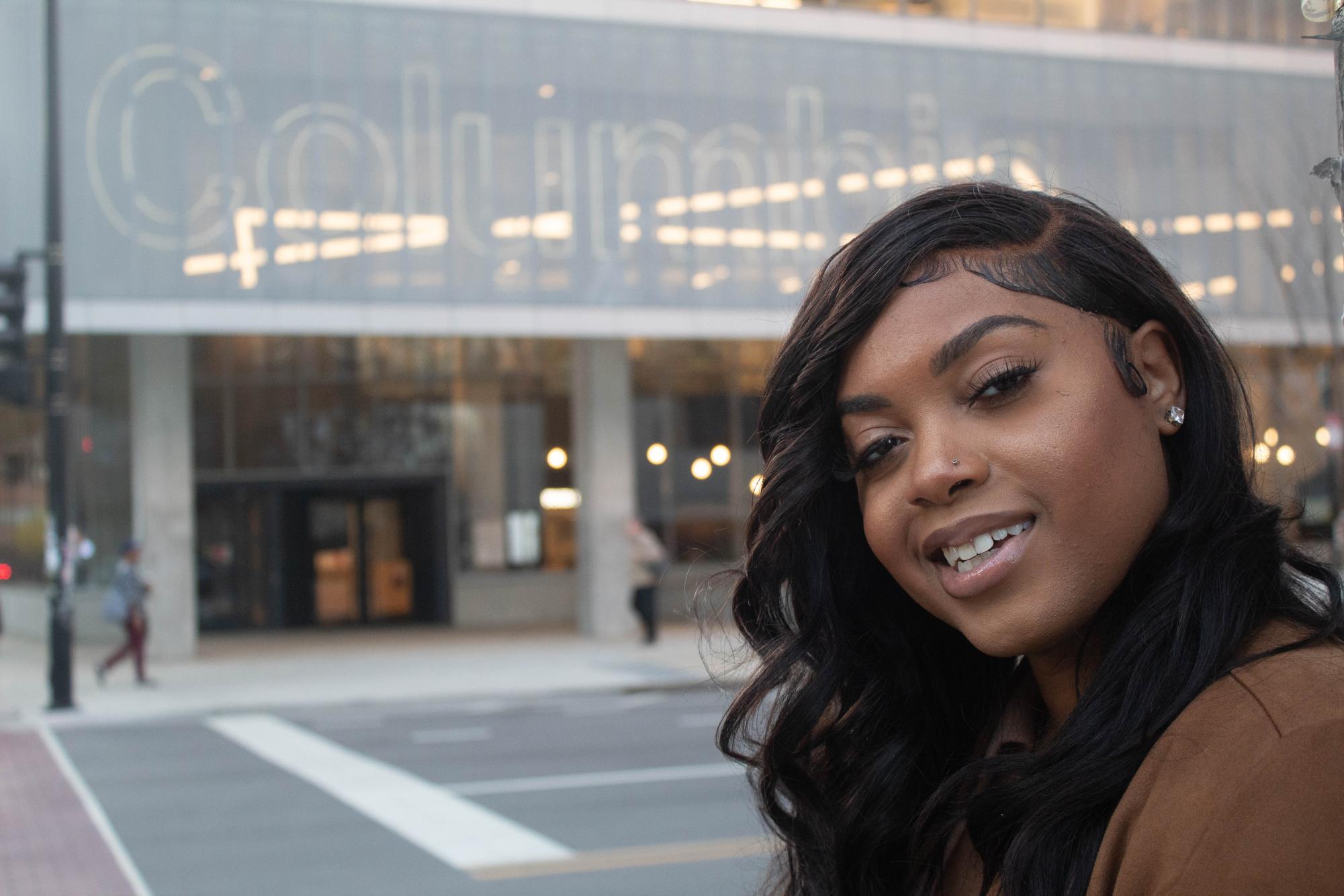
Hip-hop is an important genre and part of our nation’s culture. Those in these spaces have a job to do when it comes to influencing and impacting their audiences, Street said.
“I feel a strong type of way about the due diligence that is happening, or lack of, in hip-hop today. It is not our duty, per se, to save all of these people’s kids and teach them right from wrong, but you got to recognize your influence, especially as a rapper,” Street said.
As a woman in the hip-hop industry, Street emphasizes the importance of being able to be your true, authentic self when it comes to artistry without allowing others to dictate what that looks like.
“I like to not put myself in a box. My personal sound is really just a reflection of my environment and how I was raised,” Street said. “As artists, we should be able to be fluid. I’m very free. I don’t really want to give myself a label or title when it comes to this music thing.”
Resumen en español:
Las raperas mujeres están dejando su huella en el creciente mundo del hip-hop.
Especializada en escritura creativa con especialización en poesía, Kennedy Person, conocida por su nombre artístico KYN, se enfoca en el “sonido de Nueva York” y toma inspiración de sus artistas favoritos de hip-hop como Little Kim y Biggie.
Jaeya Bayani, estudiante de negocios musicales y estudios de hip-hop, ha crecido en torno a este género musical que forma parte importante de su vida.
Ella apoya a otras mujeres porque es una industria dominada por hombres y muchos de ellos minimizan a la mujer. “Es muy fácil compararte con hombres que te critican constantemente y con hombres que critican constantemente a otras mujeres, y las critican por cosas por las que, si [ellos] lo hicieran, no las criticarán”, dijo Bayani.
Victoria “Vicky” Street basa su música en sus experiencias de su infancia en Chicago, así como en las influencias de su hermano mayor, quien le presentó a artistas como Tupac.


